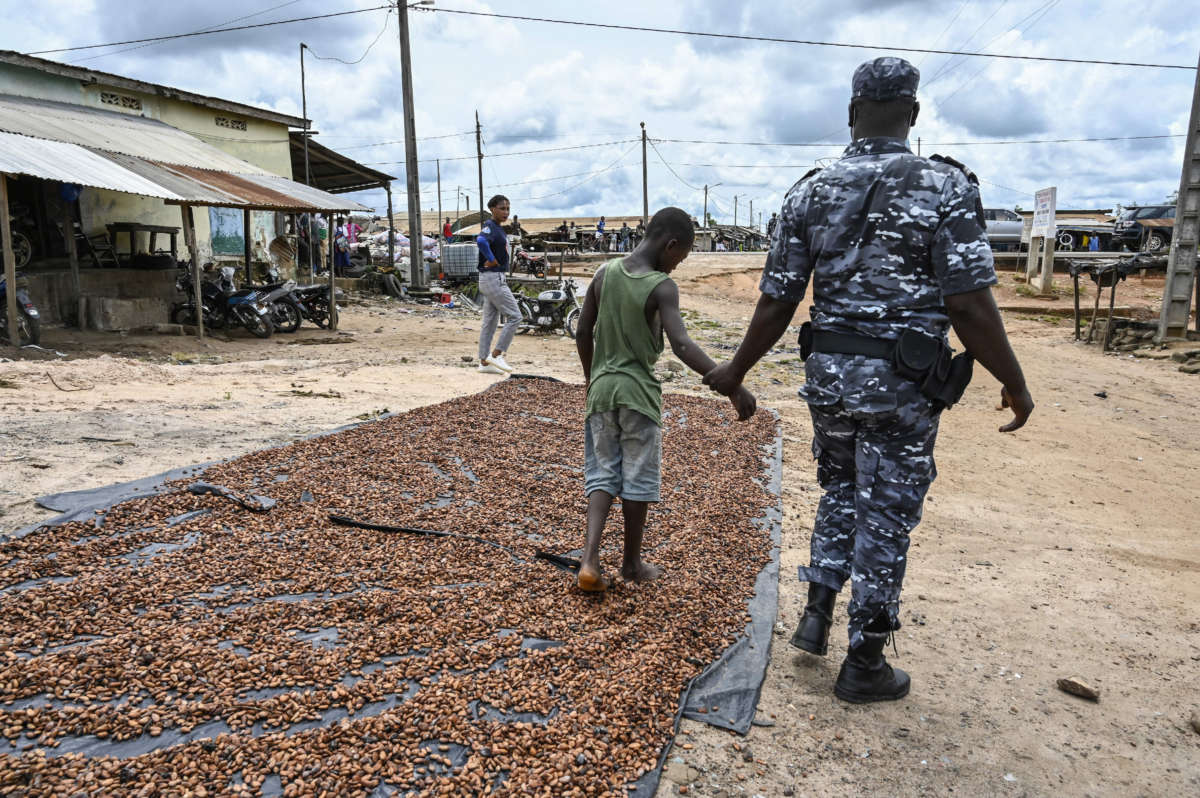On the very same day last week that President Biden signed legislation declaring Juneteenth a national holiday, the conservative-dominated Supreme Court effectively declared in Nestle USA, Inc. v. DOE et al. that slavery was morally acceptable, and U.S. capitalists could continue to profit from it, as long as it occurred outside U.S. borders.
While self-congratulatory celebrations proliferated in the wake of the new Juneteenth holiday, we are reminded of the wide gulf between symbolism and substance. Of course, symbols are extremely important. They draw attention to history and offer a frame for understanding it. They provide opportunities to affirm values and educate one another about how we got to where we are. Conversely, symbols of racism are mechanisms of continued trauma and insult. So, far be it for me to diminish the importance of symbols and historical markers.
That said, this week there was a churning in my gut as I listened to commentaries and condemnations of the evils of slavery, and discussions of how unjust it was that our ancestors in Texas were enslaved for two and a half years beyond the passage of the Thirteenth Amendment before they could free themselves. What got less attention and should have triggered widespread outrage was the U.S. Supreme Court’s decision to side with the world’s biggest chocolate producer against former child slaves working on cocoa plantations in West Africa: On June 17, the Supreme Court ruled that the formerly enslaved children could not sue the Nestle and Cargill corporations, because their cocoa suppliers were based in Ivory Coast.
West Africa’s booming cocoa industry supplies Virginia-based Nestle Corporation and Minnesota-based Cargill with ingredients for chocolate products that make these companies billions in profits. Nestle boasted over $26 billion in revenue in 2015. In contrast, the young litigants, originally from Mali, told horrific stories of being forcibly transported to work sites, beaten, kept in locked rooms overnight and compelled to work 14-hour days for little or no pay. Some testified that they were terrorized, tortured and tied to trees as punishment for attempts to escape. A U.S. Labor Department Report from 2015 estimated that more than 2 million children work under such conditions in cocoa-growing regions of West Africa.
The lawsuit, which has meandered through the courts, was based on the Alien Tort Statute, a nearly obsolete law that has been used in recent years by foreign nationals seeking redress from U.S.-based multinational companies for human rights abuses.
But in a painful reminder that neoliberalism’s “free market at all costs” philosophy is still alive and well, the Supreme Court justices in effect looked the other way. Ultra-reactionary Clarence Thomas led the way, writing for the majority, determining that since Nestle and Cargill had essentially outsourced the abuse and feigned ignorance, it was not their fault. Lawyers for Nestle and Cargill argued for a level of immunity that enables companies to continue to operate globally with impunity, when it comes to labor abuses.
Democratic Party insider Neal Katyal — a former Obama Justice Department appointee (as acting solicitor general) — was defense counsel for the chocolate magnates. The scurrilous argument that Katyal made in front of the court back in December cited as a worthy legal precedent the fact that the firm that supplied Zyklon B gas to Nazi death camps in the 1940s was not held liable at Nuremberg tribunals. Therefore, he argued, Nestle and Cargill should not be held accountable for their complicity in child slavery today. Katyal went further to argue that holding U.S. companies responsible for overseas atrocities would put them at a “competitive disadvantage” relative to other countries. He delivered this morally bankrupt argument seemingly without shame and with a veiled and spurious sympathy for the enslaved children. According to Katyal and company, child slavery is not the fault of rich U.S. companies that incentivize these practices, but rather it is simply what Africans are doing to each other.
So, as we mark our calendars for a yearly federal commemoration of the time when Black people in Texas finally achieved at least some modicum of freedom from bondage in the 19th century, let us also organize to mark Juneteenth with protests against ongoing 21st-century manifestations of slavery, from the heinous treatment of unfree child laborers on West African cocoa plantations working in service of U.S. corporate profits, to the slavery-like conditions that are the bedrock of the prison industrial complex in the United States.
Media that fights fascism
Truthout is funded almost entirely by readers — that’s why we can speak truth to power and cut against the mainstream narrative. But independent journalists at Truthout face mounting political repression under Trump.
We rely on your support to survive McCarthyist censorship. Please make a tax-deductible one-time or monthly donation.
